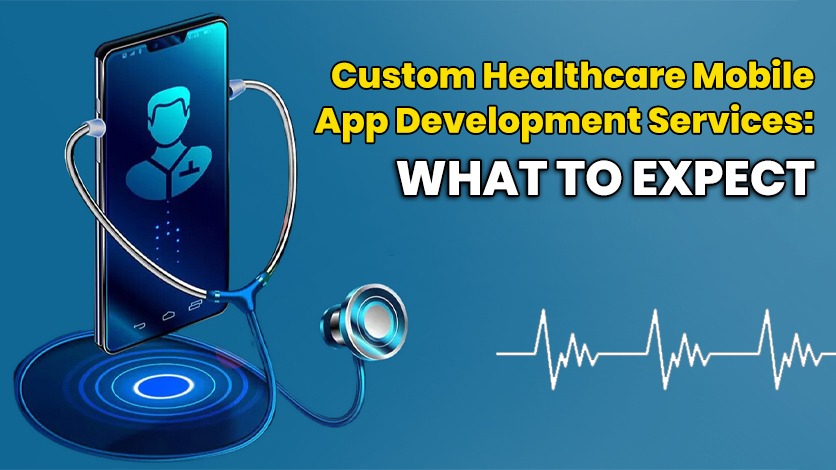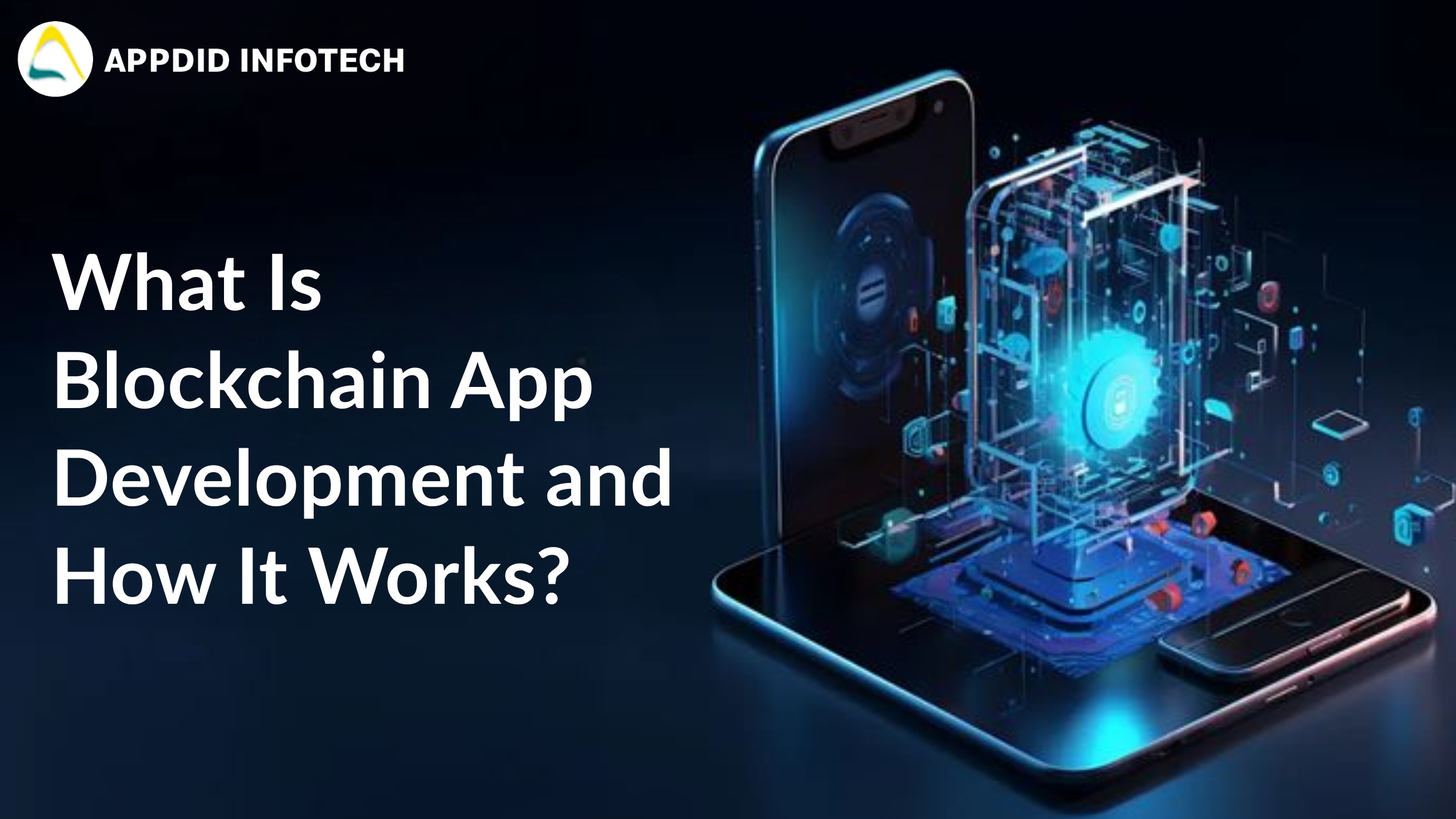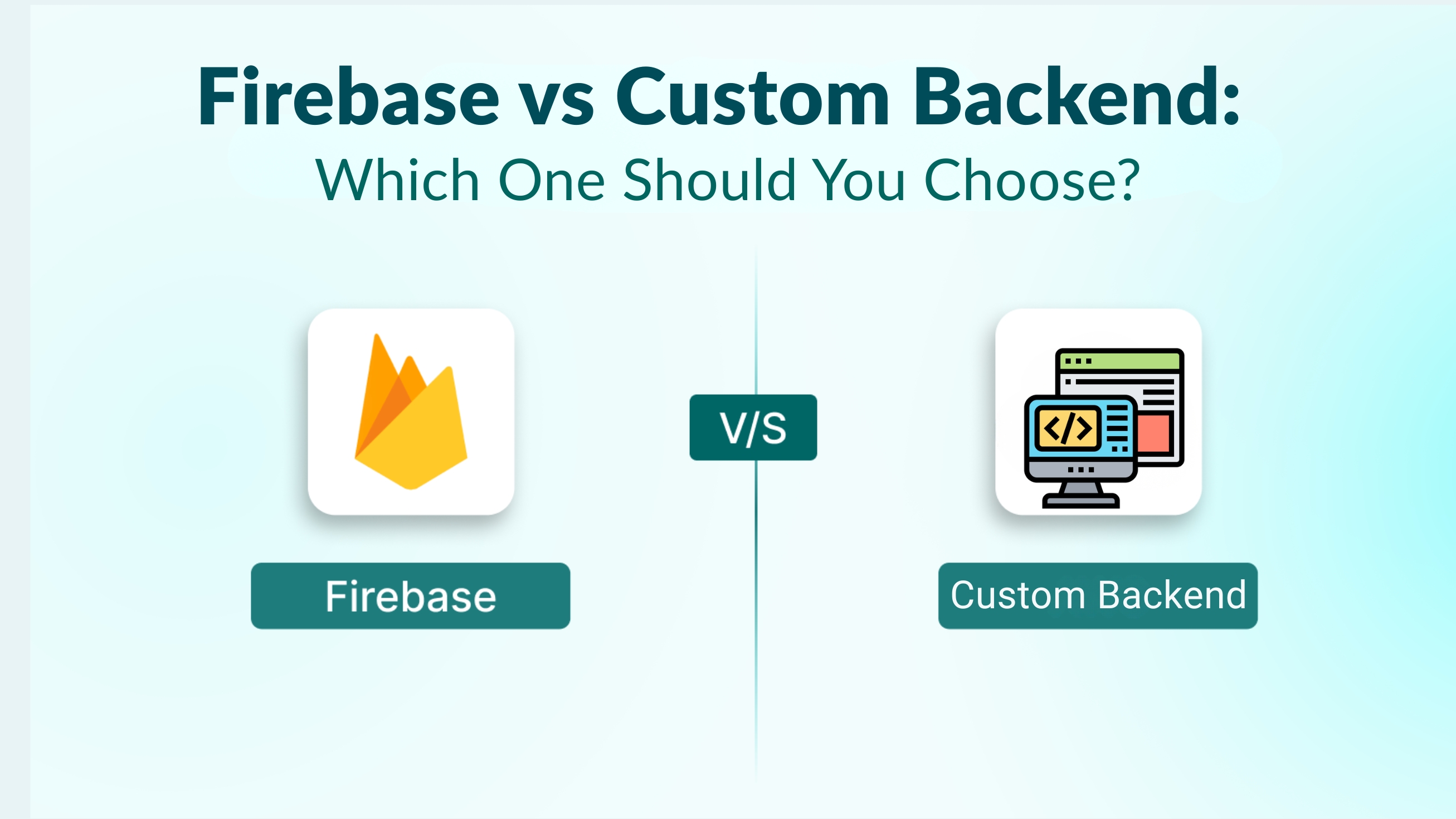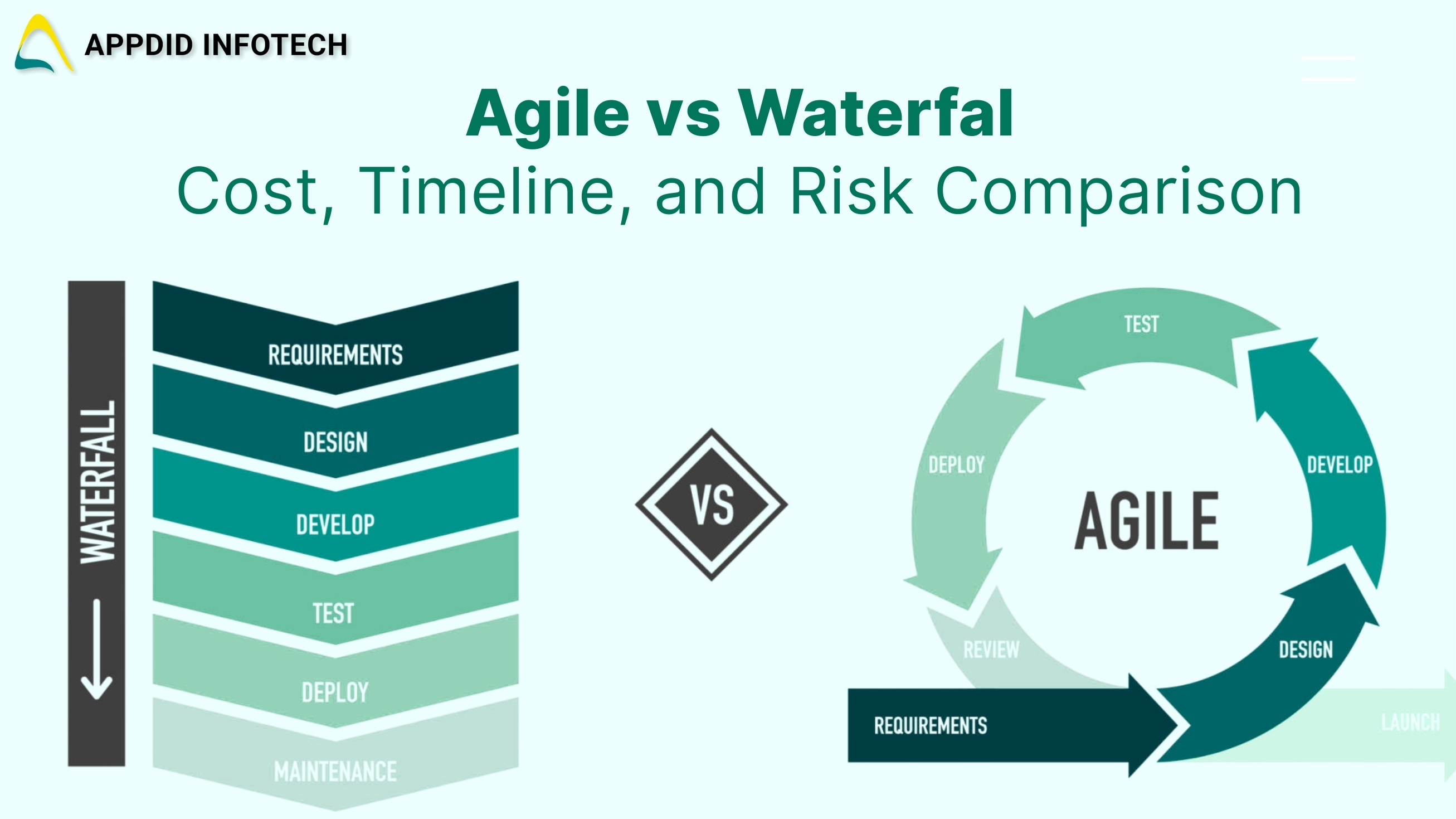In an era where digital technology is transforming every industry, healthcare is no exception. Healthcare providers are increasingly turning to mobile applications to enhance patient care, streamline operations, and deliver seamless services. This growing demand has given rise to the importance of custom healthcare mobile app development services solutions designed to meet the unique needs of healthcare organizations, professionals, and patients.
This blog explores what you can expect when you invest in custom healthcare app development, covering the latest trends, key benefits, critical features, and why choosing the right development partner makes all the difference.
What Are Custom Healthcare Mobile App Development Services?
Custom healthcare app development involves the design, development, and deployment of mobile applications tailored specifically to the healthcare industry. Unlike generic applications, custom apps are developed to align with an organization’s specific workflows, compliance requirements, user expectations, and operational goals.
Whether it's a telemedicine platform, a chronic disease monitoring app, a hospital management system, or a wellness tracking app, custom development ensures the solution is built from the ground up to serve your exact needs.
Latest Trends in Healthcare Mobile App Development Services
Understanding the latest industry trends can help healthcare organizations and tech startups future-proof their apps. Here are the key trends shaping the future of healthcare mobile app development:
AI and Machine Learning Integration
AI-powered chatbots, predictive analytics, and intelligent diagnostic tools are becoming increasingly common. These tools help in early diagnosis, automate patient queries, and enhance decision-making for healthcare providers.
Telemedicine Capabilities
The shift towards remote healthcare has made telemedicine features such as video consultations, digital prescriptions, and appointment scheduling essential. Apps are now expected to offer seamless, secure communication between patients and practitioners.
IoT and Wearable Integration
Wearable devices such as smartwatches and fitness trackers can monitor vital signs like heart rate, glucose levels, and physical activity. Healthcare apps are increasingly integrating with these devices to provide real-time health data and alerts.
EHR Integration
Electronic Health Records (EHR) integration allows seamless access to patient history, treatment plans, test results, and more. It improves communication between healthcare providers and ensures continuity of care.
Blockchain for Data Security
With privacy concerns on the rise, blockchain is emerging as a secure method to store and share medical records. Its decentralized nature ensures data integrity and reduces the risk of tampering or unauthorized access.
Voice Command and Natural Language Processing (NLP)
Voice search and voice-enabled features are improving accessibility and ease of use, especially for elderly patients and users with disabilities. NLP is enabling apps to understand and process patient inputs more effectively.
Benefits of Investing in Healthcare Mobile App Development Services
A custom-built healthcare app offers significant long-term value to both healthcare providers and patients. Here's why it's a smart investment:
Enhanced Patient Engagement
Patients today expect on-demand access to healthcare services. A mobile app offers features like appointment booking, digital prescriptions, reminders, and real-time chat, all of which help increase patient engagement and satisfaction.
Streamlined Internal Operations
From automating administrative tasks to managing patient records and billing, custom apps can streamline operations, improve staff productivity, and reduce errors.
Improved Accessibility and Remote Care
Custom apps enable healthcare providers to offer consultations, monitoring, and follow-ups remotely, especially for patients in rural or underserved areas.
Better Health Outcomes
Apps that track medication, diet, physical activity, and vital signs empower patients to take control of their health and allow providers to intervene early in case of complications.
Data-Driven Decision Making
With analytics dashboards and reporting tools, healthcare organizations can monitor performance, patient trends, and treatment outcomes to make more informed decisions.
Regulatory Compliance and Data Security
Custom apps can be built to comply with industry regulations such as HIPAA, NDHM (India), or GDPR. They ensure that patient data is encrypted, secure, and only accessible to authorized users.
Key Features of Custom Healthcare Mobile Apps
When developing a healthcare mobile app, these core features are typically expected:
Patient-Centric Features
-
User-friendly registration and login
-
Appointment booking and management
-
Telehealth consultations via video or audio
-
Prescription uploads and refill requests
-
Secure access to medical history and test results
-
Real-time health tracking through wearable integration
In-app chat or messaging with healthcare professionals
Provider-Focused Features
-
Access to Electronic Health Records (EHR)
-
Patient monitoring dashboards
- Lab and imaging result viewing
- Scheduling tools for appointments and staff
- Medical billing and insurance claim processing
Admin and Compliance Features
-
Role-based access control
-
Encrypted data storage and communication
-
Compliance with HIPAA, NDHM, or other regulations
-
Audit logs and data backup protocols
-
Integration with third-party systems like CRMs or hospital management software
What to Expect During the Custom App Development Process
Partnering with a skilled development team means you’ll follow a strategic process from idea to deployment. Here's what you can typically expect:
1. Discovery and Planning
This phase involves understanding your goals, target audience, regulatory requirements, and workflows. The development team will conduct market and competitor research and finalize the scope of the project.
2. UI/UX Design
User experience is especially important in healthcare. The team will design intuitive, accessible interfaces for patients and providers, often sharing wireframes and prototypes for review before development begins.
3. Agile Development
Using an agile methodology, developers build the app in phases or "sprints," allowing for continuous feedback, testing, and adjustments. You’ll get to see working versions of the app early in the process.
4. Integration
Whether it’s connecting with EHR systems, wearable devices, or payment gateways, the development team will ensure all essential third-party tools are smoothly integrated.
5. Quality Assurance
Testing is conducted across multiple devices, operating systems, and use cases to ensure the app is functional, secure, and bug-free. Performance, compliance, and user experience are all tested rigorously.
6. Launch and Post-Deployment Support
Once the app is live, you’ll receive ongoing support for maintenance, updates, and potential scalability needs. User feedback is monitored to ensure the app evolves based on real-world use.
Who Can Benefit from Custom Healthcare Mobile Apps?
Custom healthcare app development is not limited to hospitals or large organizations. It serves a wide range of businesses and professionals, including:
-
Private clinics and specialty practices
-
Telemedicine startups
-
Diagnostic and pathology labs
-
Wellness and fitness platforms
-
Mental health counselors and psychologists
-
Health insurance providers
-
Senior care and rehabilitation centers
- Pharmaceutical and medical equipment companies
Why Choosing the Right Development Partner Matters
Healthcare apps involve sensitive data and critical functionality. Choosing an experienced and reliable development partner ensures that your app meets industry standards, is user-friendly, and aligns with your business goals.
A capable partner should offer:
-
Domain expertise in healthcare technology
-
Proven experience in building compliant and secure apps
-
Scalable solutions with modern tech stacks
-
Ongoing support, testing, and app updates
- Transparent communication and project management
Why Appdid Is the Right Choice for Healthcare App Development
If you're looking for a trusted, experienced, and innovative app development company, Appdid App Development Company based in Thane, Mumbai is the ideal partner. We specialize in building custom healthcare mobile applications tailored to the unique needs of providers, patients, and healthcare startups.
Appdid offers end-to-end healthcare app development services—from strategic planning and UI/UX design to secure backend development, third-party integration, and post-launch support. With a strong focus on compliance, performance, and user experience, we ensure your app is not only functional but future-ready.
We proudly serve clients across India, helping healthcare organizations modernize their services and improve patient outcomes through cutting-edge technology.
Whether you need a comprehensive telemedicine solution, a remote patient monitoring system, or a digital wellness platform, Appdid is equipped to bring your vision to life.
Conclusion
The healthcare landscape is changing rapidly, and mobile technology is at the heart of this transformation. By investing in custom healthcare mobile app development services, you're not just adopting a digital solution, you're embracing a smarter, more efficient, and patient-focused way of delivering care.
Choose a development partner that understands the intricacies of healthcare, and you’ll be well-positioned to thrive in the digital age.
If you're ready to take the next step, consider partnering with Appdid, your trusted app development company in Thane, Mumbai, serving businesses across India with excellence and innovation.










